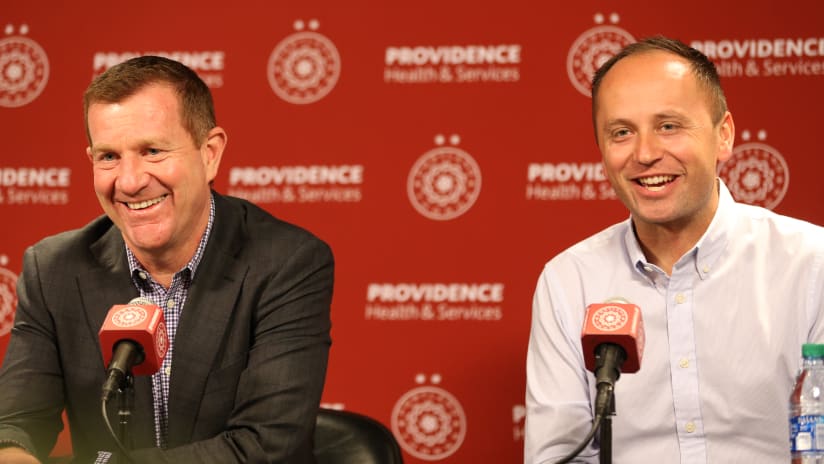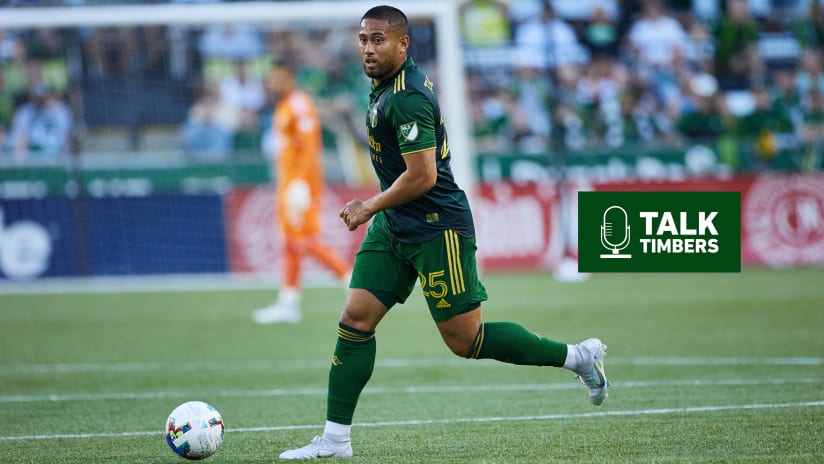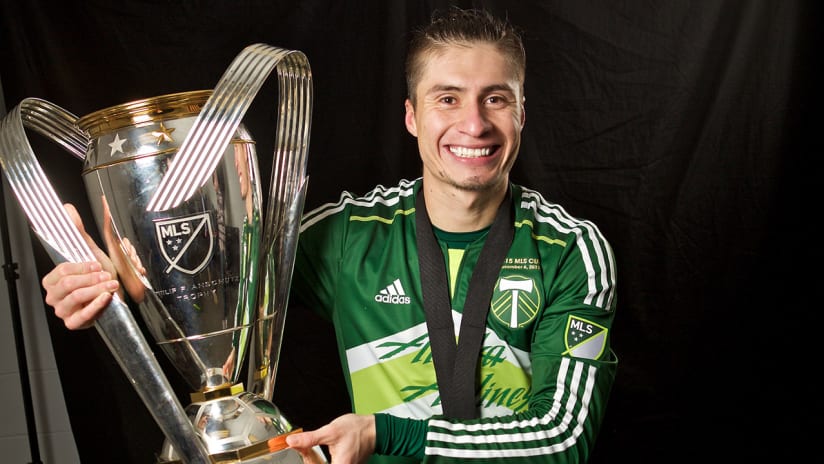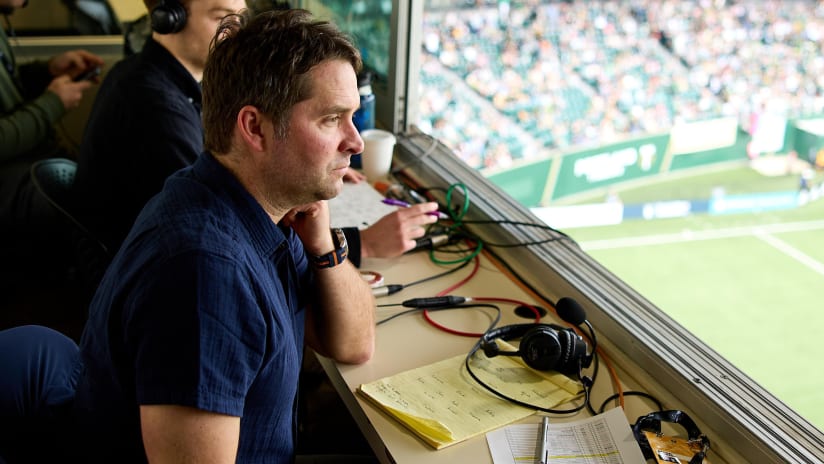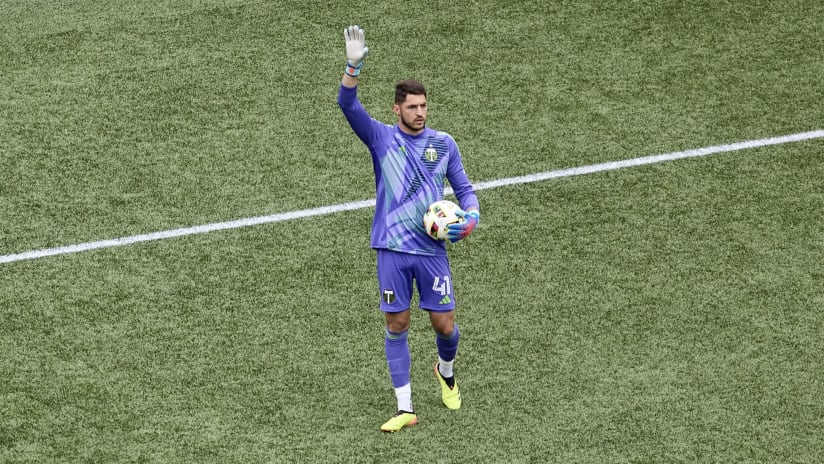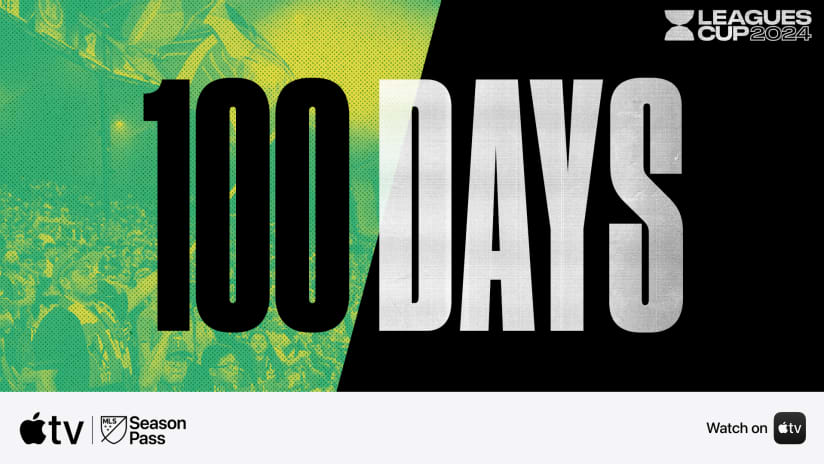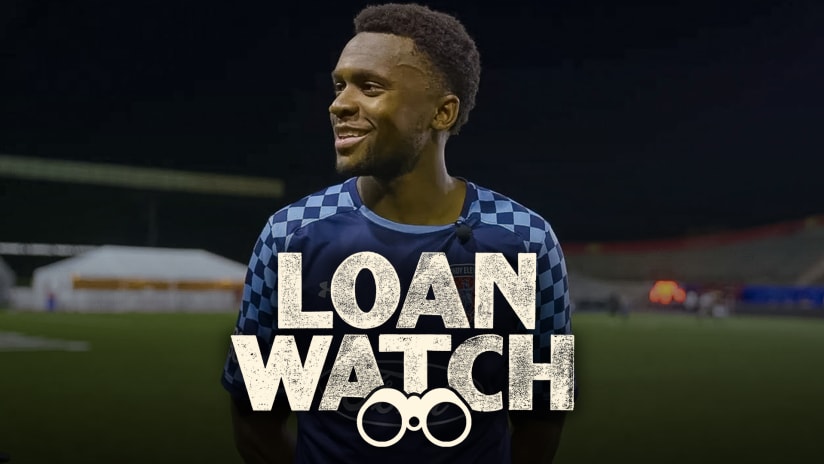PORTLAND, Ore. – Portland Thorns FC general manager Gavin Wilkinson finished his opening remarks at Tuesday’s season-ending press conference with a statement that, transcribed and deprived of its context, seems fairly obvious. “We’ve closed another chapter, and now we have to open the way to next year,” he said, reciting something that, as a truism, could be evoked by every club after any season.
The true relevance of Wilkinson’s thought, though, is in its context. For the first time since the 2015 offseason, the Thorns ended a year with major questions about the team’s direction. Portland’s third-place finish and a semifinal exit culminated a final stretch that saw the team go 1-4-1 over its last six games, scoring only once in that span.
The gap at the top of the National Women’s Soccer League may be bigger than ever, with the North Carolina Courage’s second-successive lopsided victory in the league’s final casting a different light on the NWSL, but even removed from that benchmark, the Thorns are facing major questions, perhaps existential ones. Falling from first to second to third since 2016 – from league champions to finalists to a semifinal exit – Portland is trending in the wrong direction, forcing the team to decide whether to persist along its current path or change course.
“The expectations for the Thorns are to be a team that challenges for the championship,” Wilkinson explained, “and getting knocked out in Chicago on the road was disappointing … The challenge that we faced, the struggles that we had, we need to grow and learn from.”
Both Wilkinson and Thorns head coach Mark Parsons, also on the dais at Providence Park, lauded the team’s fanbase, citing Portland’s record 20,098 average attendance as a sign of success off the field. That assessment is both undoubtedly true and, in fairness, probably deserves more attention than it will get here.
But that assessment is also clear, and in its clarity, not necessitating scrutiny or evaluation. On the field, though, the Thorns need to take inventory of the minuses that accompanied 2019’s pluses.
“There’s been positives throughout the season,” Parsons said before changing course. “The way we finished, the last five regular-season games, were nowhere near the standard that we’ve previously held ourselves to in this stretch. It’s a part of the season we’ve become accustomed to being at our best and firing on all cylinders.
“The 19 games before that, I thought we did a tremendous job to manage all the challenges. The players, specifically, did an outstanding job stepping up, stepping in, and also growing and evolving the spirit and culture of the team. Those last five games are obviously going to be sour for a while.”
When Portland reset their team after finishing sixth in 2015, moving on from Paul Riley’s two years in charge of the Thorns and making a number of high-profile player moves, they did so from an obvious trough. Sixth place is clearly unacceptable for a team with the Thorns’ resources, making it easy to be aggressive while trading Alex Morgan, welcoming Lindsey Horan, Amandine Henry, Emily Sonnett, Meghan Klingenberg, and others.
With this year’s third-place finish, though, the difficulties lie less in where than how. There is no shame finishing just behind the Chicago Red Stars, who themselves were a step behind the Courage. If that’s your down year, that says something about your organization. In a paradoxical way, you can be proud. The fact that this year’s team was in first place with five games to play, though, says something different, as does the team’s chance to redeem September’s struggles with a win in the semifinals.
Those facts hint something changed this season, something that would be easier to grapple with if it came at an obvious point, like directly before or after the World Cup. Instead, the timing was more gradual, before it wasn’t.
What change led to the 1-4-1 finish and how it happened may define Portland’s course this offseason.
“Regardless of how the regular season finished, in a knockout game, especially the experience we have as a staff, we have on the roster, it was a disappointing finish,” Parsons conceded, “starting with me and how we set up to attack that game and adjusted throughout the game.
“That’s a game that, nine times out of 10, we should be taking care of ahead of a championship. That’s going to fuel us to raise the standard and raise the bar in every element of what makes us a successful team in the locker room, on the pitch, off the field.”
But where does that fuel lead? Coming out of 2015, the team cited absences during the World Cup, a fact that defined fears among the 2019 fanbase coming into this season. This year, however, Portland exited the World Cup period in first place, and in a dominant, 5-0 showing against the Houston Dash on July 24 – the first home game the team’s full squad played together post-World Cup – the Thorns positioned themselves as a true contender to the Courage.
But while North Carolina surged into the season’s final months, Portland struggled. From the moment Midge Purce scored the team’s final goal in the Thorns’ 3-0, August 25 victory over Chicago, Portland averaged 0.16 goals per 90 minutes.
“There were a number of games after the World Cup period where you could tell things weren’t looking perfect – and you tell the mental, emotional energy levels weren’t perfect – however, the results were still there,” Parsons said. “The performances needed to continue to improve; we had improved the defensive side incredible since the beginning of the season. And then, from Game 19 and Game 20, things started to turn.”
Parsons’ comments were a push back against a narrative that, sensibly, is bound to emerge, but it’s as reductive as it is counterintuitive to say that the team was good during the World Cup and then, after its most talented players returned, bad. The Houston rout speaks to that. At the same time, it would be too simplistic to ignore the externalities that came with the squad coming back together. Perhaps those negatives didn’t emerge at the very moment the World Cup period ended, but over time, decisions made to meet 2019’s challenges acquired a greater cost.
“There’s going to be lessons for the Olympic year,” Parsons admitted, alluding to 2020. “On the tactical side, it was very clear style of play at beginning of the season and how we evolved during the World Cup period – which I think was a huge success building to the strengths of and trying to bring out the best in our players – and that final stretch, whether we were at home or away in that final stretch, the style play (was) caught in between what had been successful at different stages of the season.”
The six-game road stretch to open the season challenged the team to be simple and practical, an approach that fits nicely with a manager’s plans to build a team up throughout a season. When, in May, the World Cup departures began to impact the squad, those traits became virtues, with the direct, intense style the team employed come summer not only simplifying plans but leveraging the team’s strengths.
Once every team got their players back, though, strengths and weaknesses changed, along with the tactics teams could use to combat Portland. Then, as if the league came out of a period of trial and error, the adjustments arrived, and the Thorns hit a wall.
“We needed to continue to evolve,” Parsons admits, “and have it very clear what our expectations were in attacking and defending against the oppositions that have been a bit more consistent in the way they addressed the season. I think we all fell into the trap, a little bit, of the mentality of our group.”
Parsons went on to talk about the team’s pride and identity, albeit briefly. In that allusion, though, is the conundrum every staff faces when dealing with the aftermath of success. At this point, it’s possible that the identity that drove the Thorns’ success in 2016, 2017 and 2018 also kept the team from meeting late 2019’s challenges.
How the team grapples with that identity will define the 2020 season. There will be elements of the team’s current era that Parsons and Wilkinson will want to retain. The Thorns have been their league’s second-most successful team over the last four years for a reason. But in their question to take “second” out of the picture, there also need to be tough decisions about places where the team isn’t meeting internal expectations.
“Without getting into too many specifics, going back to the season and the number of players that we carried, I think there is a focus on increasing the quality of the foreign spots,” Wilkinson admitted, when asked about potential roster moves. “Making sure every [international player] that comes is in better than the player that we can acquire domestically. Making sure our foreign spots go back to the Amandine Henry-caliber and making sure we maximize those in every way.”
Ellie Carpenter will be part of that picture – with Wilkinson having announced the fullback’s new contract extension during the press conference – but the standard for other spots need not be a lofty Henry Level to prove more productive. Going back to the Thorns’ 2017 championship season, the team got major production from all of Henry, Nadia Nadim and Ashleigh Sykes, in addition to 2019 holdovers Dagny Brynjarsdottir and Hayley Raso. Henry went back to France before the 2018 season, Nadim was lured away by Manchester City, while Sykes is now retired.
Wilkinson hopes the team can use its international draw, among other methods, to acquire “three, four, five starting-caliber players,” all of whom will be asked to solve another of the team’s issues. While getting caught between two stylistic worlds, Portland also prompted questions about their on-field identity.
How should the team be playing? Is this a team that should be building off a midfield of Christine Sinclair, Horan and Brynjarsdottir? Should “Sinc” be moved back to striker, and Horan farther up the field from her deep-midfield position? Does the team need to be able to play and defend with more speed, or can the same strengths Portland leveraged to success for almost four seasons be carried into a fifth?
If the answer to that last question is no, Parsons and Wilkinson have the virtue of build from a blank slate, with no illusions that each of 2017’s virtues should be applied going forward. If, however, the decision is to build on what’s tried and, hypothetically, true, a new system of belief needs to be injected into the squad. The Thorns need to be confident in either what they are or what they’ll be asked to become.

